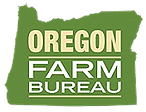
Concerning developments continue to unfold following the resolution of the Environmental Protection Agency’s (EPA) "mega" pesticide case. This case, originally initiated against the EPA by the Center for Biological Diversity and Pesticide Action Network North America in 2011, has set the stage for a series of draft proposals from the EPA to resolve concerns over the protection of endangered species. These proposals carry significant implications for farmers, foresters, and others nationwide.
Rodenticides - In November 2022, the EPA issued proposed decisions (PIDs) for 11 rodenticides. The proposed changes, if enacted, would introduce stricter personal protective equipment requirements, enhanced record-keeping practices, mandatory carcass searches, and, most importantly, prohibitions on existing spot and broadcast treatments of commonly used rodenticides in orchards, vineyards, and other crops.
These prohibitions would significantly impact the ability to manage vertebrate pests, with potential yield losses anticipated across key crops, including grass and specialty seed crops, hazelnuts, and tree fruits, among others. These changes would also affect industries like golf that rely on rodenticides for turf management. EPA's stance on these changes is partially rooted in a lack of data for evaluating ecological and human health risks. Product registrants have made concerted efforts to compile and submit relevant data, but those data have not yet been accepted by the agency.
Vulnerable Species Pilot - In July, the EPA introduced its draft Vulnerable Species Pilot for Endangered Species (VSP), which details the Agency's strategy for safeguarding what they define as the most vulnerable species under the Endangered Species Act (ESA).
Within this proposal, the EPA identifies 27 species as being exceptionally at risk, one of them being the Taylor's checkerspot butterfly (TCB). This species, which boasts just under 20 acres of known habitat in Oregon, is one of the focal points of the Agency's attention.
EPA's proposal outlines several extensive "range areas" for the TCB. Notably, EPA presents these designated "range areas" as Pesticide Use Limitation Areas (PULAs), within which the Agency plans to impose a complete restriction on ALL conventional outdoor-use pesticides.
The areas marked out by the EPA for these restrictions encompass approximately 1 million acres of agricultural and commercial forest land across western Oregon. Remarkably, over 99% of these acres do not currently host the Taylor's checkerspot butterfly (TCB). If the proposal moves forward, a sweeping ban on pesticides would be imposed on these acres, affecting a wide range of activities, including agriculture, forestry, research farms, golf courses, and more.
Within this proposal, the EPA identifies 27 species as being exceptionally at risk, one of them being the Taylor's checkerspot butterfly (TCB). This species, which boasts just under 20 acres of known habitat in Oregon, is one of the focal points of the Agency's attention.
EPA's proposal outlines several extensive "range areas" for the TCB. Notably, EPA presents these designated "range areas" as Pesticide Use Limitation Areas (PULAs), within which the Agency plans to impose a complete restriction on ALL conventional outdoor-use pesticides.
The areas marked out by the EPA for these restrictions encompass approximately 1 million acres of agricultural and commercial forest land across western Oregon. Remarkably, over 99% of these acres do not currently host the Taylor's checkerspot butterfly (TCB). If the proposal moves forward, a sweeping ban on pesticides would be imposed on these acres, affecting a wide range of activities, including agriculture, forestry, research farms, golf courses, and more.
In their current form, EPA's plans include extreme restrictions that fail to demonstrate significant advantages for ESA-listed species but will result in dire consequences for those engaged in agriculture, forestry, and other natural resource-based industries.
Oregon Farm Bureau and a coalition of organizations led by Oregonians for Food and Shelter (OFS) have been working to educate policymakers by providing specific comments and meeting with Congressional offices to highlight our concerns.
While the opportunity for specific comment on these proposals may have passed, it isn’t too late to act. Please contact your Congressional offices and let them know your concerns and how these proposals could affect you and your operation.
Contact your member of Congress: https://bit.ly/3ZYN5lw
Contact your Senator: https://bit.ly/3S0Fcu1
For more resources, please visit
https://bit.ly/3PXcgAb


Comments